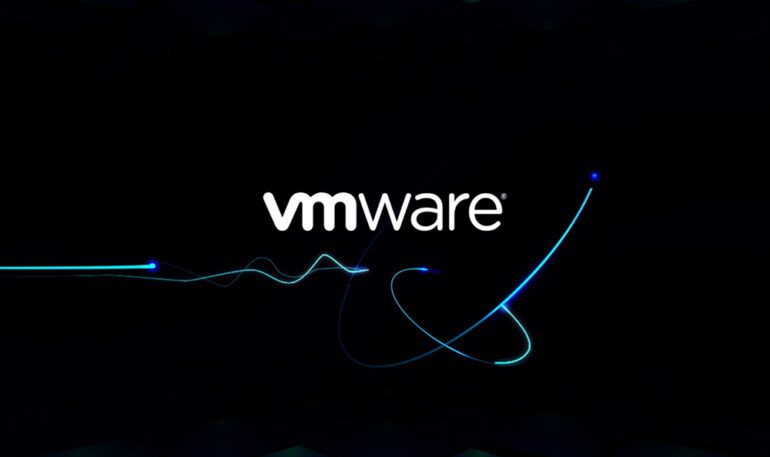TL;DR:
- VMware and Intel collaborate to accelerate AI adoption across data centers, clouds, and edge environments.
- Their joint AI stack simplifies model development using existing infrastructure and open-source software.
- Private AI balances AI benefits with privacy and compliance, offering accessibility to data science.
- Chris Wolf of VMware emphasizes the transformative potential of Private AI for businesses.
- Sandra Rivera of Intel sees AI’s potential to enhance every aspect of life.
- VMware Private AI places AI capacity where data is generated, processed, and consumed.
- It enables rapid model fine-tuning and swift inferencing while safeguarding corporate data.
- Reference architecture combines Intel’s AI suite, Xeon processors, Data Center GPUs, and VMware Cloud Foundation.
- Key components include 4th Gen Intel Xeon processors, Intel Data Center GPU Max, and VMware Cloud Foundation.
- Servers from Dell Technologies, HPE, and Lenovo support VMware Private AI.
Main AI News:
In a groundbreaking collaboration, VMware, Inc. and Intel have harnessed their collective innovation prowess, spanning over two decades, to pave the way for accelerated artificial intelligence (AI) adoption. Their mission is to democratize private AI, making it accessible across data centers, public clouds, and edge environments. This alliance seeks to empower customers to harness the potential of AI using their existing VMware and Intel infrastructure in tandem with open-source software, streamlining AI model development and deployment.
The synergy between VMware’s Cloud Foundation and Intel’s AI software suite, fortified by Intel Xeon processors equipped with built-in AI accelerators and Intel Max Series GPUs, is poised to deliver a meticulously validated and benchmarked AI stack. This stack will facilitate data preparation, model training, fine-tuning, and inferencing, thereby accelerating scientific breakthroughs and enriching business and consumer services.
VMware boasts a global customer base of more than 300,000 organizations deploying VMware Cloud, while Intel’s solutions are trusted by hundreds of thousands of customers worldwide. The ubiquity of VMware and Intel products in enterprise environments creates a powerful combination, opening doors to data science accessibility and enabling the global embrace of Private AI—an architectural approach meticulously balancing AI-driven business gains with privacy and compliance imperatives.
Chris Wolf, Vice President of VMware AI Labs, emphasizes the transformative potential of Private AI: “When it comes to AI, there is no longer any reason to debate trade-offs in choice, privacy, and control. Private AI empowers customers with all three, enabling them to accelerate AI adoption while future-proofing their AI infrastructure.”
Sandra Rivera, Executive Vice President and General Manager of the Data Center and AI Group at Intel, envisions a future where AI enriches every facet of life: “With the potential of artificial intelligence to unlock powerful new possibilities and improve the life of every person on the planet, Intel and VMware are well equipped to lead enterprises into this new era of AI, powered by silicon and software.”
The VMware Private AI initiative strategically places compute capacity and AI models exactly where enterprise data is generated, processed, and consumed. Whether in a public cloud, enterprise data center or at the edge, this initiative supports traditional AI/ML workloads and generative AI. VMware and Intel’s collaboration enables rapid fine-tuning of task-specific models and swift inferencing of large language models, all while safeguarding customers’ private corporate data. Moreover, it introduces the capability to fine-tune smaller, cost-effective state-of-the-art models for easier maintenance and updates on shared virtual systems.
Use cases spanning AI-assisted code generation, experiential customer service centers, recommendation systems, and classical machine statistical analytics can now coexist on the same general-purpose servers running the application.
The joint effort by VMware and Intel includes the design of a reference architecture, merging Intel’s AI software suite, Intel Xeon processors, Data Center GPUs, and VMware Cloud Foundation. This architecture empowers customers to build and deploy private AI models on their existing infrastructure, reducing total cost of ownership and addressing environmental sustainability concerns.
Key components of this reference architecture include:
- 4th Gen Intel Xeon processors with Intel Advanced Matrix Extensions (Intel AMX) for significant performance enhancements.
- Intel Data Center GPU Max, with up to 128 Xe cores, is designed for demanding AI workloads.
- Intel’s AI software suite offers end-to-end open-source software and optional licensing components for streamlined AI workflows.
- VMware Cloud Foundation delivers enterprise-class infrastructure, operational simplicity, and enhanced security.
The future of AI is unfolding through the innovative collaboration between VMware and Intel, enabling organizations to harness Private AI’s transformative potential across their existing infrastructure. Servers from Dell Technologies, Hewlett Packard Enterprise, and Lenovo, equipped with 4th Gen Xeon CPUs featuring Intel Advanced Matrix Extensions (Intel AMX) and Intel Max Series GPUs, will support VMware Private AI, further extending the reach of this groundbreaking initiative.
Conclusion:
The collaboration between VMware and Intel in the Private AI initiative represents a significant leap in the AI market. By providing a comprehensive solution that empowers businesses to leverage AI while maintaining privacy and compliance, this partnership is poised to drive the widespread adoption of AI across industries. The combination of VMware’s established presence in the cloud and data center space with Intel’s cutting-edge hardware and software capabilities positions them as leaders in enabling the AI revolution. This development has the potential to fuel economic growth, transform business functions, and unlock new possibilities in various sectors.

